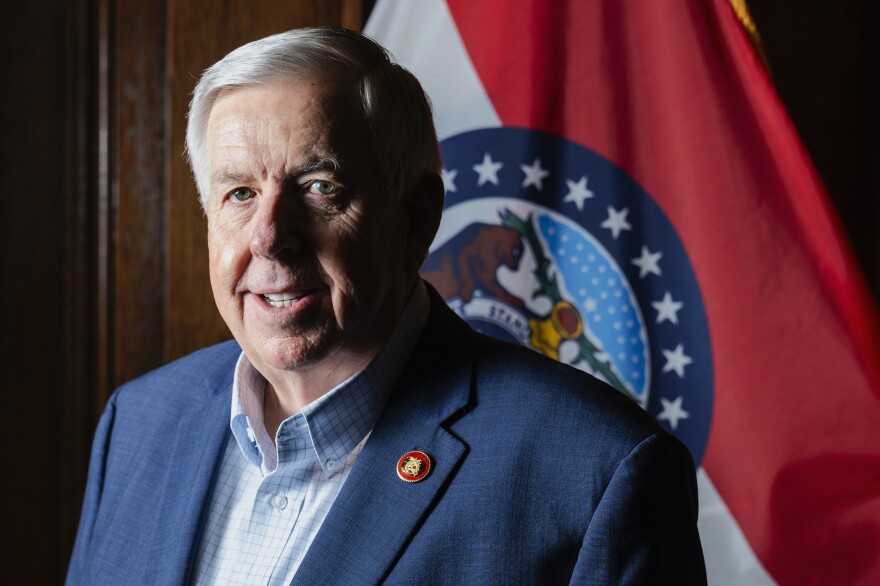Mike Parson did not plan on becoming Missouri’s governor in 2018.
The lieutenant governor was thrust into the role when Eric Greitens resigned under a cloud of scandal.
Six years and a reelection later, Parson gave his final State of the State address to the Missouri General Assembly on Wednesday.
In his speech, Parson talked about the priorities he wants to see in this year’s budget, as well as the legislation he wants passed.
He also reflected on his tenure as governor and what he considers some of the biggest successes of his administration.
St. Louis Public Radio’s Jason Rosenbaum and Sarah Kellogg sat down with Parson the day after his speech to talk about his priorities this year and his legacy.
This interview was edited and condensed for clarity.
Jason Rosenbaum: You mentioned during your speech an almost overwhelming amount of things that you've done throughout your tenure as governor. And you also alluded to how some of those decisions were not universally beloved by everyone. How do you balance doing things as governor you feel are necessary and right, but may make a lot of people upset?
Mike Parson: I remember sitting at this very table that we're sitting at today with you that we basically said, ‘What really makes a difference in people's lives that we could do in this administration?’ And we really went with the infrastructure and workforce development. We know neither one of them were political issues, that they were going to be good for everybody.
So, I think that's the reason we made those a priority and stayed with them. We know there's always going to be hot button political issues between Republicans and Democrats. But we were really trying to find the sweet spot a little bit, what is it we can work with both sides of the aisle to really move Missouri forward? And I think we did.

Sarah Kellogg: Regarding your State of the State address, there was some criticism from more conservative Republicans in the Senate, there isn't a plan to reduce spending within this budget to make the government smaller. What do you have to say about those comments?
Parson: Well, I think we actually have done that, we've done it three times, we've cut income taxes three times in a row, and you put money back in people's pockets. But I also think when you say that, you're not taking into consideration you’re growing. When all of a sudden your revenues go up 40%, you are going to spend more money just like a normal person does.
Kellogg: The past few State of the States that I've covered with you, it's always really laser-focused on budgetary proposals. And this year, you asked for new policy in the form of Rep. Brenda Shields, R-St. Joseph, and Sen. Lauren Arthur’s, D-Kansas City, child care tax credit program. Why did you single out those bills? What makes child care such an important issue for you?
Parson: The reality of it is, if you can't take care of that child in an adequate facility, where do you go?
So you've got to stay home, or you got to hope you got grandparents or hope you got friends, you got family members to do that or you try to take them somewhere, wherever you can just get by. And I don't think that's always a good scenario to put a child in that position.
So I think that's a priority that helps Missouri. I think it helps our economy, our businesses and families.

Rosenbaum: Did you ever think that you would be in this position? And how do you want to be remembered as governor?
Parson: I think a lot of things prepare you for this position in my lifetime. I think the gray-hair portion of it was a plus, to be able to come in the way I came in.
But I tell you what, I go back to when I came out of the military. I was overseas for two tours of duty and when I came back, I said I would never leave this state again. Because I love the people of this state and I love this state. And I've had an opportunity as governor to really try to do the best thing for the people of this state.
Controversy is always going to come with this job no matter what you do. You're never going to make everybody happy. There's going to be different opinions. But I think at the end of the day, I hope people will look at it and try to say, ‘You know, he did what government is supposed to, I might not agree with him all the time, but I believe he was really trying to put people first in this state and was trying to do the right thing.’ And I hope that's kind of the way people look at it.”







